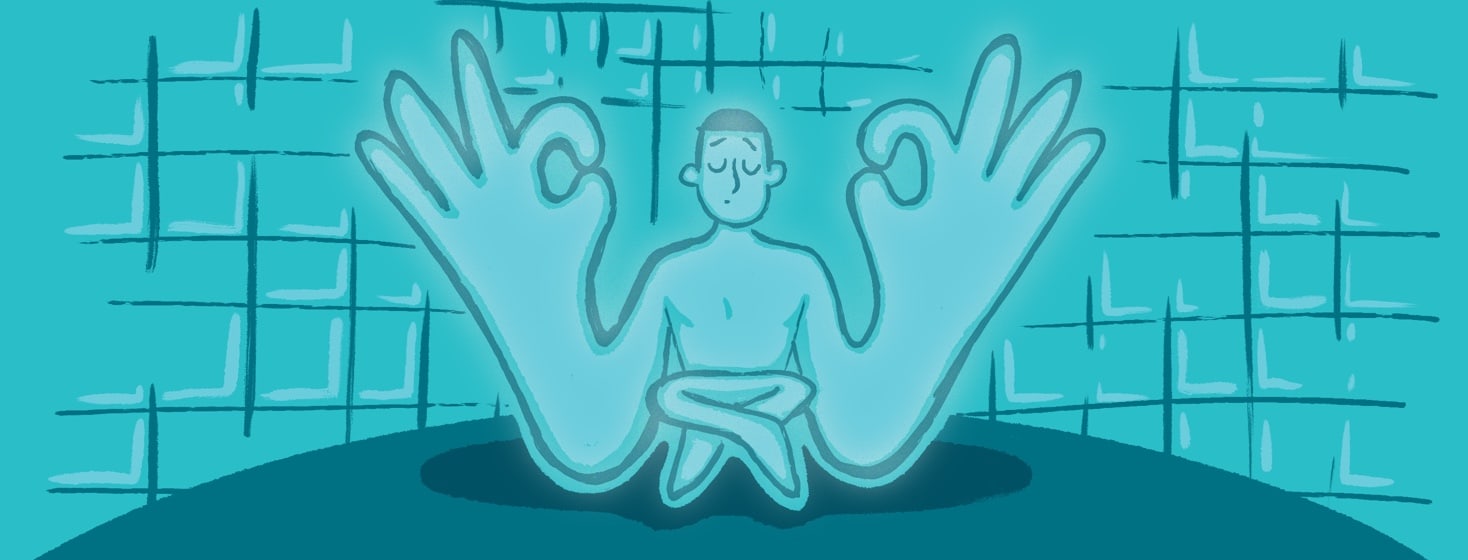Could Meditating Make Phototherapy More Effective?
Picture this: I’m cozied up in bed, reading a book about mindfulness meditation when I come across a passage. It was about a research study that those with psoriasis who meditated during their phototherapy sessions healed at four times the rate of those who did not.
What?! It’s likely that I’ll be going back for phototherapy in the winter, so my interest was sufficiency piqued. Here’s more about those research findings.
Introduction to phototherapy
If you’d like to look it up for yourself, it was published in 1998 in the Journal of Psychosomatic Medicine. The full study title is “Influence of a mindfulness-based stress reduction intervention on rates of skin clearing in patients with moderate to severe psoriasis undergoing phototherapy (UVB) and photochemotherapy (PUVA).”1
UVB is a type of phototherapy that uses ultraviolet B irradiation, while PUVA is a type of photochemotherapy that uses both ultraviolet A irradiation. This is in combination with psoralen (applied topically or taken orally).
To keep it simple, we’ll refer to both as phototherapy. In summary, a small group of subjects referred for phototherapy were randomly assigned to two groups. One group received meditation instructions via audiotape and the other group did not.
Meditation methods
Those who were chosen to meditate received a brief audio instruction prior to their phototherapy. The group then proceeded to listen to audio instructions during their session. They were also instructed to continue their meditation after the session was over and to remain standing in the lightbox.
The meditation tapes directed the subjects to be mindful of their breath in a non-judgmental way and to remain aware of body sensations (including the warmth of the lights and the feelings of air across the skin). They were also instructed to remain aware of ambient sounds, thoughts, and feelings.
As the sessions progressed, those meditating were asked to visualize the light healing their skin, slowing down the growth of skin cells. To note: the subjects were not instructed to continue meditation after they left their treatments or to make any other changes.
Meditation and phototherapy results
Subjects that meditated during phototherapy sessions were more likely to clear faster than those who did not. The meditators also felt more positive about their sessions, had increased relaxation, and were more likely to report they felt the treatments were working.
The sample size was small and a few participants dropped out which meant the researchers had to predict what their probability of clearing would have been. The study could also not rule out the presence of the placebo effect.
Mental interventions (whether meditation, hypnosis or cognitive therapy) can improve patient outcomes. As a final note, any intervention that reduces the number of phototherapy sessions may also lower the risk of developing skin cancer.
Continuing with meditation and phototherapy
After subjects were familiar with the audiotape instructions, many elected to listen to music and executed the instructions from memory. While I’m not sure how probable it is that I could sneak headphones into my phototherapy sessions, the main author of this study offers many free meditation exercises on his website, so I may just have a listen and memorize some before my next phototherapy session.
On a final note, I found it interesting that the authors stated lots of other skin conditions are affected by stress. I wonder why skin is so susceptible to our stress and anxiety? A question for another article, perhaps!

Join the conversation